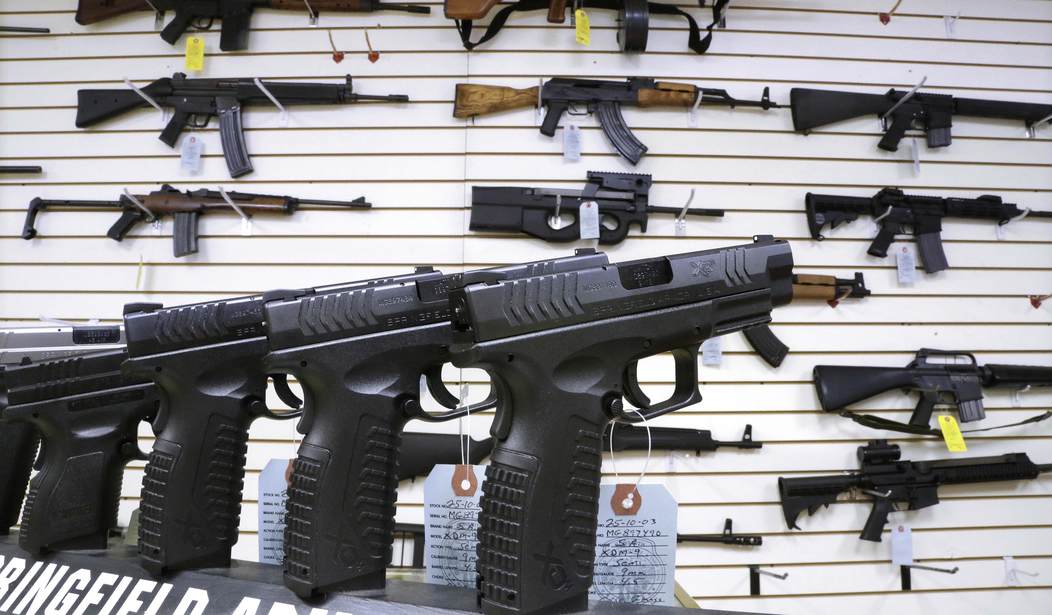The Supreme Court is the highest court in the land. It’s where you go as a last resort and it’s where unconstitutional laws are supposed to go and die, at least with how we currently do things.
Unfortunately, sometimes the Court gets it wrong. They have nine justices to minimize the odds of that–it’s not just one justice making the decision–but people are people and they can make mistakes.
But regardless of what the Supreme Court rules, a lot of lower courts find ways to ignore those rulings. At least, they try to if at all possible.
Over at America’s 1st Freedom, they touch on what a difference the Bruen decision has made in that regard.
Nevertheless, in the 14 years following Heller, many lower courts did exactly what Heller had said they must not. Rather than obeying constitutional text and original public meaning, many judges treated the Breyer dissent as if it had been the majority opinion. They made their own “balancing” decisions, often with their thumbs on the scale to rule against the civil rights of gun owners.
After 14 years (“longstanding,” according to the Times), the Supreme Court put its foot down in Bruen, and told lower courts to follow Heller’s rule: Courts should defer to the judgement of the American people who enshrined the right to arms in the U.S. Constitution.
There’s still ongoing defiance in some lower courts, but less so than before Bruen. Consider the Fourth Circuit Court of Appeals, which covers Maryland to South Carolina. In the period after Heller and before Bruen, every single legal challenge raising the Second Amendment was defeated. For all practical purposes, the Second Amendment did not apply in the Fourth Circuit.
After Bruen, things are different. In Maryland, every gun sale includes a seven-day waiting period and a background check. The plaintiffs in Maryland Shall Issue v. Moore did not challenge that law. Instead, they targeted another, newer statute, that The New York Times euphemistically said was “related to licensing requirements for handguns.” Under that law, enacted in 2013, citizens who want to use this right need to get a “handgun qualification license” that requires them to be fingerprinted, to take a “firearms safety training course” and then to submit an application for a license and wait up to 30 days. After all that is done, the applicant must go through the seven-day waiting period and another background check.
…
In Maryland Shall Issue, the state attorney general could not provide any credible analogues. Laws taking guns away from people who misused them are not analogous to laws that delay gun ownership by over a month—laws that prevent an effective means of self-defense for those who may urgently need a defensive arm.
Likewise, historic laws requiring militia members to participate in training are not analogous to the 2013 law. Militia laws did not forbid gun ownership by militiamen until after they had been trained. And training laws did not apply to gun owners who were not in the militia.
Now, there’s no guarantee that the Fourth Circuit won’t keep up its ways and continue to ignore the Second Amendment. However, now they have to engage in more impressive acts of legal contortion to try and justify their claims.
After all, as noted, a universal delay of over a month before you can even attempt to buy a gun isn’t remotely the same as telling specific, dangerous people that they can’t have a firearm. A law mandating training by militia members isn’t remotely similar to a law dictating training before you can even buy a firearm.
They’re not remotely the same, which means the Supreme Court has laid down a ruling that lower courts are going to have a harder and harder time ignoring.
We saw how often courts ignored Heller. It was constant and repeated. The whole “interest balancing” thing that Heller rejected was still repeatedly used, though you’d think such learned men and women would understand that, in the government’s opinion, it’s always in its interest to curtail rights as much as possible.
As noted above, though, they took the dissenting opinion and treated it like the actual ruling.
The Supreme Court’s actual decision was essentially rendered null and void.
With Bruen, we’re seeing a lot of courts that don’t typically rule in a pro-gun way finding gun control laws unconstitutional. It might be short-lived, but we’re still seeing it, which is novel. In time, I suspect we’ll continue to see the understanding of Heller evolve, hopefully to uphold the right to keep and bear arms, though I won’t be surprised to see the opposite.
After all, it takes time for people to find arguments just plausible enough for a court to think they can get away with rendering a verdict in opposition to our rights.
But Bruen is accomplishing a lot. While it hasn’t ended gun control for good–that’s not likely to happen no matter what the Supreme Court rules–it has made it a lot harder for courts to ignore our rights.
And when they do, well, it seems this Supreme Court is more than willing to take on gun cases for a change.








Join the conversation as a VIP Member